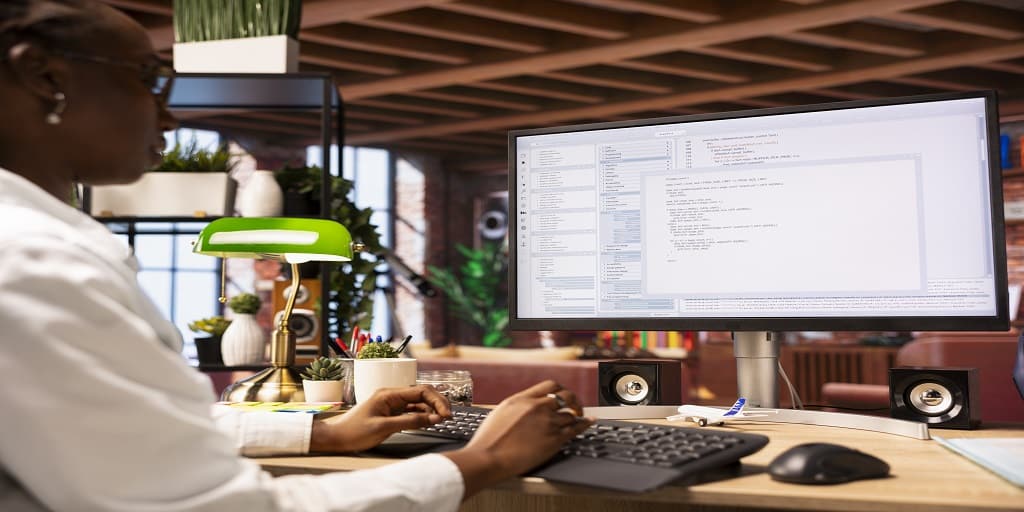Introduction: The Shift Toward Smarter Restaurant Management in Oman
Oman’s restaurant industry is evolving rapidly, fueled by innovation, tourism, and the growing appetite for premium dining experiences. Whether it’s a fine dining venue in Muscat, a bustling café in Salalah, or a beachside eatery in Sohar, every restaurant today faces one common challenge—managing operations efficiently while ensuring top-notch customer service.
At the heart of this efficiency lies a simple yet critical task: billing. Traditional billing processes, often dependent on manual entries, handwritten notes, or outdated systems, can easily lead to costly mistakes. Errors in orders, miscalculations, or wrong tax applications can frustrate customers and directly impact profits.
To keep up with Oman’s digital transformation goals under Vision 2040, restaurants are increasingly turning to smart, automated solutions. This is where restaurant management software in Oman becomes a game-changer—transforming billing from a time-consuming task into a seamless, accurate, and customer-friendly process.
The Problem with Manual Billing Systems
A. Common Billing Errors That Hurt Business
Manual billing systems are prone to human error. A simple typo or misplaced decimal point can result in incorrect bills, refunds, or disputes with customers. These small mistakes accumulate over time, creating losses that affect both reputation and revenue.
B. Hidden Costs of Manual Operations
While manual processes may seem “free,” they carry hidden costs. Staff spend extra hours double-checking bills, reconciling sales, and managing receipts. This reduces productivity and delays service. Moreover, without automation, tracking daily sales or tax records becomes a tedious process, often requiring external help or accounting hours.
C. Compliance & Reporting Challenges
In Oman’s regulated business environment, ensuring VAT compliance and accurate financial reporting is crucial. Manual billing systems make this difficult, leading to missed entries or incorrect data during audits. Automated billing software eliminates these issues by generating accurate, VAT-compliant reports instantly.
The Smart Solution: Restaurant Billing Software
A. What Makes Modern Billing Software Different
Modern restaurant billing systems go far beyond simple point-of-sale functions. They integrate every aspect of your restaurant’s operations — from order taking and kitchen management to invoicing and reporting — into a single, seamless platform.
These systems offer real-time synchronization, meaning that every order, update, or cancellation is reflected instantly across all terminals, minimizing confusion and manual errors.
B. Key Features That Transform Operations
Modern billing software for restaurants in Oman typically includes:
- Automated Billing and Receipts: Generate accurate invoices instantly with tax details included.
- Table & Order Management: Streamline dine-in, takeaway, and delivery billing from one interface.
- Multi-User Access Control: Assign roles for cashiers, waiters, and managers for better accountability.
- Integrated POS and Kitchen Display: Orders go directly to the kitchen, reducing delays and mistakes.
- Cloud Backup & Data Security: All data is stored safely on the cloud, preventing data loss or theft.
C. Why Omani Restaurants Are Adopting It Fast
Restaurants in Oman are embracing automation not only for speed but also for consistency. The availability of Arabic interface options, compatibility with Oman’s payment gateways, and strong local tech support make digital billing systems a natural fit for both small eateries and multi-branch chains.
Benefits of Implementing Billing Software for Restaurants in Oman
1. Eliminate Manual Errors and Improve Accuracy
Automation minimizes human involvement in billing calculations. When items, prices, and taxes are pre-configured, bills are generated automatically and accurately every time. The risk of double-billing or miscalculations disappears, ensuring customers always receive the right total.
2. Faster Service and Happier Guests
In a busy restaurant, speed is everything. With restaurant inventory management software in Oman, orders are sent to the kitchen instantly, and bills can be generated within seconds after dining. This quick turnaround not only improves table management but also enhances guest satisfaction by reducing waiting time.
3. Centralized Data & Simplified Accounting
For restaurant owners managing multiple outlets across Oman, keeping track of performance is easy with a cloud-based system. Sales, expenses, and reports are stored centrally, allowing real-time monitoring. Integration with accounting tools makes it easier to generate monthly or yearly reports without external help.
4. Enhanced Staff Productivity
Automation allows staff to focus more on service quality than on administrative tasks. Waiters no longer need to manually note orders or calculate totals—freeing them to serve guests faster and better. Managers can track performance and make data-driven staffing decisions.
5. Compliance with Oman’s Tax and Business Laws
Modern restaurant software ensures every bill includes the correct VAT and complies with Oman’s legal standards. The software also generates digital records that simplify audits and reporting—a key advantage during financial reviews or inspections.
How Restaurant Software Boosts Business Growth
A. Smarter Insights with Data Analytics
Every transaction adds valuable data. Restaurant software captures this data and turns it into actionable insights — identifying top-selling items, best-performing days, and customer trends. These insights help optimize menu pricing and marketing campaigns.
B. Better Decision-Making with Real-Time Reports
Owners no longer need to wait for end-of-day summaries. With cloud access, real-time sales data and performance dashboards can be viewed anytime, anywhere—even from a smartphone. This flexibility helps make informed business decisions quickly.
C. Integration with Other Systems
A key strength of modern billing software lies in its ability to integrate with other essential systems like inventory management, loyalty programs, accounting tools, and online ordering platforms. This creates a unified ecosystem, ensuring smooth coordination between all restaurant operations.
Implementing the Right Restaurant Software in Oman
A. Choosing a Trusted Technology Partner
When selecting a billing system, restaurants should prioritize vendors who understand the local market. Look for:
- Proven success stories in Oman’s F&B sector
- 24/7 customer support
- Cloud-based architecture
- Integration with local payment gateways (OmanNet, NBO, Bank Muscat)
- Affordable, scalable pricing for small and large businesses
B. Step-by-Step Onboarding & Training
A smooth transition from manual to digital billing requires planning. Start by migrating your existing menu and tax details to the system, training staff on how to use the interface, and testing the workflow during non-peak hours. Most providers offer free onboarding sessions to simplify this process.
Conclusion: Transform Billing, Elevate Your Business
Manual billing is outdated—it drains productivity, invites errors, and limits growth potential. By adopting restaurant billing software, Omani restaurateurs can automate routine processes, ensure billing accuracy, and focus on what truly matters—delivering great food and memorable experiences.
Ready to eliminate billing errors and streamline operations? With Kays IT’s Restaurant Software in Oman, your restaurant can achieve complete automation, improved accuracy, and operational excellence. Designed for Oman’s growing F&B industry, Kays IT helps you eliminate billing errors, boost staff efficiency, and deliver a seamless dining experience—empowering your business to operate smarter and serve guests better every day.
Streamline your restaurant billing and eliminate costly errors today.
Discover how our restaurant software in Oman can simplify operations and boost accuracy.
Frequently Asked Questions
1. How does restaurant software help eliminate billing errors?
Restaurant software automates billing by calculating prices, taxes, and discounts accurately. It eliminates human mistakes like wrong entries or missed items and ensures real-time order updates. This automation saves time, reduces manual corrections, and provides accurate receipts—helping Omani restaurants maintain professionalism, transparency, and customer trust in every transaction.
2. Is Kays IT’s restaurant software suitable for all types of restaurants in Oman?
Yes, our restaurant software is designed to suit all restaurant formats—from fine dining and cafés to quick-service and multi-branch chains. Its customizable features adapt to each business type, ensuring smooth billing, reporting, and staff management across diverse F&B operations throughout Oman’s fast-evolving hospitality industry.
3. Can restaurant software integrate with existing POS and accounting systems?
Absolutely. Most advanced restaurant software solutions integrate seamlessly with POS systems, accounting tools, and inventory modules. This synchronization ensures consistent data flow across departments—from billing and finance to operations—giving Omani restaurateurs full visibility and control over their restaurant’s financial health and daily performance.
4. Does restaurant billing software comply with Oman’s VAT and regulations?
Yes, modern restaurant billing software in Oman is built to comply with the Sultanate’s tax regulations. It automatically applies VAT rates, generates compliant invoices, and produces detailed reports for audits. This ensures your restaurant stays compliant, saves time on manual calculations, and maintains error-free financial records throughout the year.
5. How can Kays IT help restaurants transition from manual to digital billing?
Kays IT provides complete support during the transition—from software setup and menu configuration to staff training. The process is smooth and guided, ensuring minimal disruption to operations. Once implemented, restaurants experience faster billing, improved data accuracy, and an overall boost in operational efficiency and customer satisfaction.



